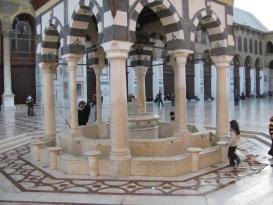This project explores the intricate relationship between religious regulations, societal practices, and environmental considerations in the realm of classical Islamic jurisprudence, focusing on the Middle East and Mediterranean. The research seeks to understand the importance of water in Islamic rituals, particularly in the purification process of ablution, in the context of environmental and societal settings. Adopting an ecological perspective, it asks how Islamic legal principles have addressed water use and water quality not only from a religious perspective, but also in response to the natural world.
More generally, the project aims to promote dialogue between the fields of religious, intellectual, and environmental history in Islamic societies by examining how people’s lived experiences in their specific surroundings have intersected with their religious beliefs. It will contribute to our understanding of how different cultures and individuals perceive the significance of water, whether in a physical, metaphorical, or divine sense, and how these perceptions have shaped water management and policy in their societies. By studying the societal and religious regulations that influenced women’s access to and use of water, the research will also broaden our knowledge of how water supervision impacted the experiences of women in various communities across the region. Against the backdrop of increasing concerns about future droughts in the regions under survey here, and the potential clashes and anxieties over water resources and supply, this study will offer insights into historical traditions in order to better comprehend current cultural perspectives on water.

